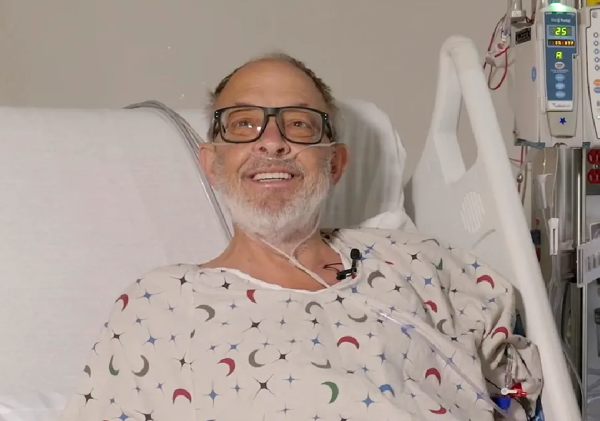
Lawrence Faucette before xenotransplantation surgery (Photo: Deborah Kotz/University of Maryland School of Medicine via AP)
Navy Veteran Lawrence Faucette, the second person to undergo a groundbreaking pig heart transplant, has passed away nearly six weeks after the experimental surgery at the University of Maryland Medical Center.
Faucette, 58, was ineligible for a traditional human heart transplant due to his heart failure and pre-existing conditions. Receiving a genetically modified pig heart gave Faucette a glimpse of hope and an opportunity to spend more time with his family, despite the uncertainty that came with the experimental procedure.
Xenotransplantation uses genetically altered pig organs to address the severe shortage of human donor organs. Initially, Faucette showed significant progress after the September 20 surgery. His doctors reported excellent heart function and had reduced support medication for his heart. However, recent signs of rejection began to emerge, ultimately leading to his passing on Monday.
Faucette’s wife, Ann, expressed gratitude to the medical team and her husband’s commitment to helping advance xenotransplant research. In his memory, Dr. Bartley Griffith, who performed the surgery, emphasized Faucette’s last wish to contribute to the understanding of pig heart transplants for the benefit of future patients.
For decades, xenotransplantation has faced challenges, mainly due to the rejection of foreign animal tissues by the recipient’s immune system. Recent advancements, such as genetic modifications using CRISPR, have been made to make pig organs more compatible with human recipients.
Faucette’s decision to undergo the pig heart transplant was driven by his desire for more time with his family. He understood the experimental nature of the procedure and hoped for the best possible outcome. Although he didn’t survive as long as he had hoped, his contribution to advancing the field of xenotransplantation remains significant.
This loss highlights the pressing need for organ donors and the ongoing efforts to improve the success rates of xenotransplantation. With over 113,000 people on the national transplant waiting list and an average of 17 individuals dying daily while waiting for donor organs, the pursuit of innovative solutions like xenotransplantation continues to be crucial in addressing this critical medical challenge.












